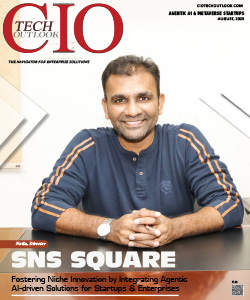South Korea Unveils National AI Model to Compete with US, China
CIOTech Outlook Team | Friday, 08 August 2025, 10:59 IST

- South Korea is building sovereign AI models to reduce tech dependence on the U.S. and China.
- The project taps local chip strengths, with support from Nvidia and Amazon.
- Backed by $700M, South Korea targets AI leadership by 2027.
In a major step to assert its technology autonomy and dominance as an international player, South Korea has initiated a national project to develop a native AI foundation model, which establishes it as a serious player in the global AI competition, currently led by the U.S. and China. The project has been initiated by the Ministry of Science and ICT (MSIT), and clearly developed to show power in the building of sovereign AI based on Korean technologies across the entire technology stack.
Five consortia led by the country’s leading technology companies, including SK Telecom, LG, and Naver, are tasked to develop foundation models using mainly domestic technology. The SK telecom group includes some interesting partners such as gaming company Krafton and semiconductor start-up Rebellions. The aim of creating new AI foundation models is to reduce the reliance on foreign AI foundation models.
South Korea's globally competitive semiconductor industry. Major players such as Samsung and SK Hynix will supply high-bandwidth memory (HBM) and on-shoring fabrication support, while a growing startups, like Rebellions, provide cutting-edge chip design. Although the use of Nvidia GPUs for the actual training will still be present, this focused on reducing reliance on external platforms through localized data centers, including SK Telecom's Titan supercomputer and an AI hub developed in collaboration with Amazon.
Also Read: EU Begins AI Rules Rollout Amid Tech Industry Compliance Divide
SK Telecom, which launched its own chatbot "A." in 2022, is looking to deploy the first openly available Korean foundational AI model at the end of 2025. These models will vary in size to support use cases in healthcare, finance, and defense. In part, this project is designed to compete with OpenAI as well as other Chinese competitors like DeepSeek and, in part, can be viewed as geopolitical initiative in order to provide states with alternatives to U.S. or China-centric AI ecosystem.
This project is based on the notion of "sovereign AI", as South Korea wishes to protect their critical infrastructure by controlling the AI used within its territory. They have committed $700 million to the project and are looking to purchase 10,000 GPUs to support development, with a goal of becoming a major global AI power by 2027.
Government support, the project to address disadvantages such as limited R&D budgets when compared to massive global players, and the challenge of building a large base of developers around its open-source models. But the country's robust technology enablers and availability of research talent create an enviable local landscape for future success.



.jpg)
